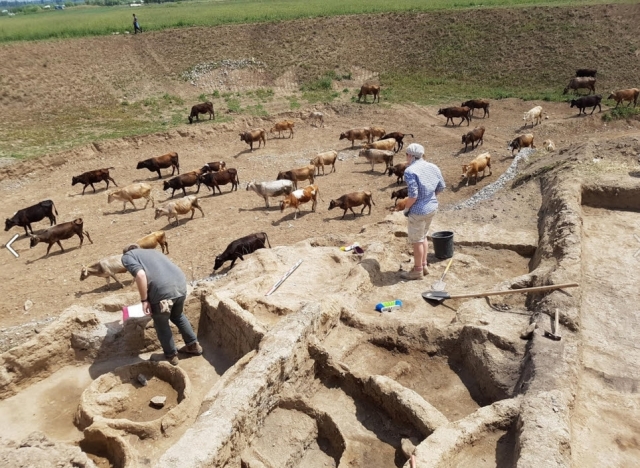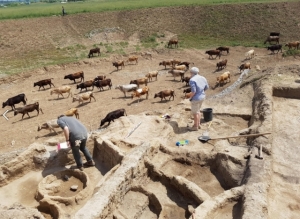Archeological Dig May Confirm Georgia’s Status as Cradle of Wine
TBILISI – Venice’s Ca' Foscari University and the Georgian National Museum (GNM) have recently discovered vine pollen from a vessel was used in ritual ceremonies by the Bronze Age Kura-Araxes civilization, that may confirm that viniculture was first practiced in the world in what is now modern-day Georgia, the Science Daily reported.
The dig uncovered two animal-shaped ceramic vessels from circa 3000 BC at the Aradetis Orgora archaeological site, 100 kilometers west of Tbilisi. The vessels contained traces of well-preserved common grape vine pollen, which shows the importance of wine in Kura-Araxes culture, according to Georgian palynologist Eliso Kvavadze.
“Due to the context of the discovery, this suggests that wine was drawn from the jar and offered to the gods or commonly consumed by the participants of the ceremony,” said Ca' Foscari University’s Elena Rova.
Georgia is known as one of the world’s oldest wine producing regions. Grapes have been cultivated in the South Caucasus since the Neolithic period, with wine production dated back to the early Bronze Age.
27 researchers and students from Georgia and Italy took part in a major archaeological dig in the summer of 2015, when the vessels were unearthed.
A new expedition is scheduled for June 17-July 31.
By Eka Karsaulidze
Edited by Nicholas Waller
Photo: hvino.com












